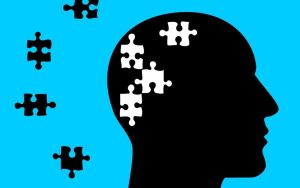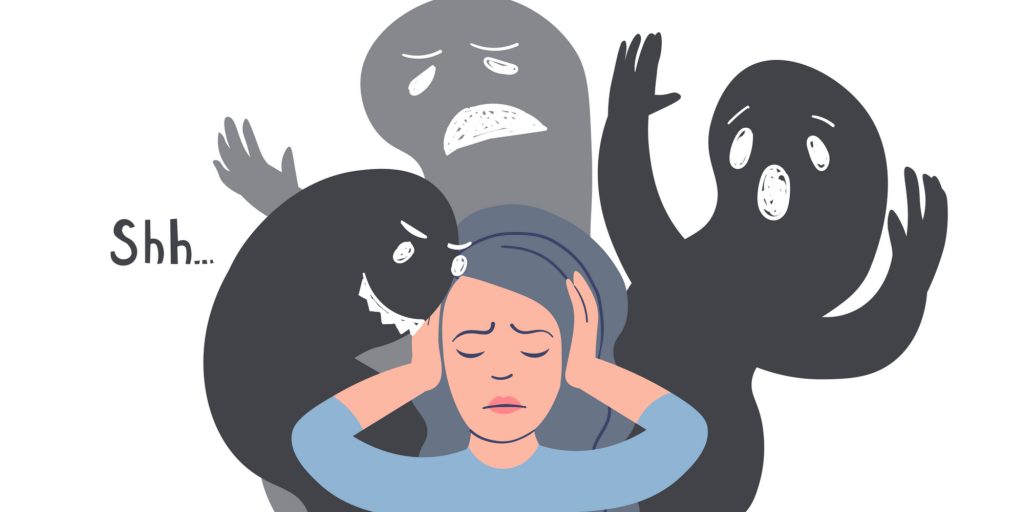Schizophrenia is a mental disorder that affects how someone thinks, feels, and behaves. It can cause you to see or hear things that are not there, and to believe things that are not true. Schizophrenia can also change your behavior. People with schizophrenia may find it hard to talk with other people and to feel happy about themselves. This can be a very frightening condition for both the person with schizophrenia and their loved ones. In this guide, we will discuss everything you need to know about this disorder: its symptoms, causes, treatment options, and more!
Contents
- 1 What Is Schizophrenia?
- 1.1 Symptoms of Schizophrenia
- 1.2 Causes Of Schizophrenia
- 1.3 Negative Impact Of Schizophrenia
- 1.4 Dealing With Schizophrenia
- 1.5 Therapy Options For Schizophrenia
- 1.6 Medication Options For Schizophrenia
- 1.7 Hospitalization For Schizophrenia
- 1.8 Self Help Strategies For Schizophrenia
- 1.9 Helping Someone With This Disorder
- 2 Conclusion
- 3 A Word From Therapy Mantra
What Is Schizophrenia?

Schizophrenia is a mental disorder that affects how a person thinks, feels, and behaves. It can cause hallucinations (seeing or hearing things that are not there), delusions (believing things that are not true), and disorganized thinking. Schizophrenia also causes problems with emotional expressions, such as feeling little emotion or having too much emotion. People with this disorder have trouble thinking clearly, talking to others, and being normal in everyday life. This is because of the symptoms they have.
Schizophrenia is thought to be caused by both genetic and environmental factors. Schizophrenia usually begins in late adolescence or early adulthood. Symptoms can vary from mild to severe and can last for years or even decades. Although there is no cure for schizophrenia, treatment can help manage symptoms.
Symptoms of Schizophrenia

- Hallucinations are one of the most common symptoms of schizophrenia. People with schizophrenia may see, hear, smell, taste, or feel things that are not there.
- Many people with schizophrenia also experience delusions. Delusions are false beliefs that a person holds even though they know them to be untrue. For example, a person with this disorder might believe that someone is out to get them or that they have special powers or abilities.
- People with schizophrenia often have disorganized thinking. This can cause them to jump from one topic to another without any logical connection, to speak in a way that is hard to understand or be unable to keep track of what is happening around them.
Causes Of Schizophrenia
The cause of schizophrenia is still unknown, but it is thought to be caused by both genetic and environmental factors.
- Genetic factors are probably involved in schizophrenia because the disorder tends to run in families. Even if someone has a gene for this disorder, that doesn’t mean they will automatically develop the disorder.
- Environmental factors may also play a role in causing schizophrenia. Some people may have a higher chance of getting this disorder if they have been exposed to the virus or toxin.
- Schizophrenia usually begins in late adolescence or early adulthood. This is when people are most likely to experience their first symptoms. However, sometimes children as young as five or six years old can develop this disorder. And while it is rare, some people do not show any symptoms until they are much older, such as in their 50s or 60s.
The symptoms of schizophrenia can vary from person to person. They can also change over time. Some people have mild symptoms that don’t interfere with their everyday life. Others have more severe symptoms that make it hard for them to function normally.
Negative Impact Of Schizophrenia

Schizophrenia can have a devastating impact on the lives of those who are affected by it, as well as their families and friends. The disorder can cause problems with thinking, emotion, and behavior. Some common negative effects of this disorder include:
- Difficulty concentrating or making decisions. One common symptom of schizophrenia is difficulty focusing on tasks or making decisions. This can make it difficult to hold down a job or take care of everyday tasks.
- Social isolation. Schizophrenia can cause people to withdraw from friends and family, or become agitated and aggressive around them. This can lead to a feeling of isolation and loneliness.
- Depression and anxiety. People with schizophrenia often experience depression and anxiety. These conditions can make it difficult to cope with the symptoms of this disorder.
- Suicidal thoughts or behaviors. Schizophrenia can increase a person’s risk of suicide.
- Inability to experience pleasure. People with schizophrenia may have a hard time enjoying things that used to bring them happiness. This is called anhedonia.
- Anger and irritability: People with this disorder may become angry and irritable for no reason.
- Hallucinations and delusions: Schizophrenia can cause people to see, hear, or believe things that are not real. This can be very frightening and upsetting.
- Schizophrenia can also lead to problems at work or school, and increase the risk of involvement in criminal activity: Difficulty concentrating or making decisions can lead to problems at work or school, social isolation can lead to a lack of friends and involvement in criminal activity, and the symptoms of schizophrenia can lead to difficulty following rules or completing tasks.
Dealing With Schizophrenia
If you have a loved one with schizophrenia, it is important to learn about the disorder and how best to support your loved one. Schizophrenia is a chronic mental illness that affects how a person thinks, feels, and behaves. It can be very difficult to live with schizophrenia, and people who have the disorder often require long-term care and treatment.
There are several things you can do to help your loved one manage their schizophrenia:
- Learn about the disorder. The more you know about schizophrenia, the better equipped you will be to help your loved one. Make sure to read up on all aspects of the disease—the symptoms, treatments, and coping strategies.
- Encourage your loved one to seek treatment. Schizophrenia is a serious mental illness, and it is important to get help if you are struggling with it. Treatment can include medication, therapy, and support groups.
- Be supportive. It can be difficult living with schizophrenia, and your loved one will need your support more than ever. Be there for them when they need you and offer encouragement when they are feeling down.
- Stay positive. Remember that schizophrenia is a treatable disorder, and most people who have it lead full and productive lives. Keep your expectations high and focus on the positive aspects of your loved one’s life.
Therapy Options For Schizophrenia
There are many different types of therapy available for those living with schizophrenia. Some of the most common therapies include:
- Cognitive Behavioral Therapy (CBT): CBT is a type of therapy that focuses on changing the way a person thinks and behaves. This type of therapy can be helpful in managing symptoms of schizophrenia.
- Family Therapy: Family therapy is a type of therapy that involves family members and friends of someone who has schizophrenia. This type of therapy can help to improve communication and relationships within the family, as well as provide support for those affected by schizophrenia.
Medication Options For Schizophrenia

There are many different types of medications available to help manage symptoms of schizophrenia. Some of the most common medications include:
- Atypical Antipsychotics: Atypical antipsychotics are a type of medication that is used to treat schizophrenia and other psychotic disorders. These medications work by blocking certain receptors in the brain, which helps to control symptoms of psychosis.
- Conventional Antipsychotics: Conventional antipsychotics are a type of medication that is used to treat schizophrenia and other psychotic disorders. These medications work by blocking certain receptors in the brain, which helps to control symptoms of psychosis.
Hospitalization For Schizophrenia
In some cases, hospitalization may be necessary for those with schizophrenia. This may happen if a person is experiencing a severe psychotic episode, or if they are not responding to treatment. Hospitalization can provide a safe and stable environment for those with schizophrenia, as well as help to ensure that they are receiving the necessary treatment.
Self Help Strategies For Schizophrenia
- Stay on your medication schedule: This is one of the most important things you can do to help manage your schizophrenia. Missing doses or stopping your medication altogether can lead to a relapse in symptoms.
- Create and stick to a routine: Having a regular routine can help you feel more in control and organized, which can be helpful for managing schizophrenia. Try to schedule time for activities that make you happy and relax you, like reading, listening to music, or spending time with friends and family.
- Take care of yourself: It’s important to eat healthily and get enough exercise when you have this disorder. Not only does this promote good physical health, but it also helps improve mental well-being too. Make sure to avoid alcohol and drugs as they can make this disorder’s symptoms worse.
- Seek support: It can be really helpful to talk to someone who understands what you’re going through. There are plenty of people out there who want to help, so don’t be afraid to ask for support from friends, family, or professionals.
- Participate in any therapy or support groups offered to you: These can be great resources for learning how to cope with schizophrenia and connecting with others who understand what you’re going through.
- Stick to a routine as much as possible: Having a regular routine can help you feel more in control and organized, which can be helpful for managing this disorder. Try to schedule time for activities that make you happy and relax you, like reading, listening to music, or spending time with friends and family.
- Avoid alcohol and drugs: Alcohol and drug use can worsen symptoms of schizophrenia. If you’re struggling with substance abuse, seek professional help.
Other Tips To Deal With The Disorder
- Attend all of your appointments with your doctor and mental health team: This is an important part of managing your schizophrenia. Regular check-ups with your doctor can help make sure you’re on track with your treatment and that any changes in your symptoms are addressed promptly.
- Talk to someone who understands: It can be really helpful to talk to someone who understands what you’re going through. There are plenty of people out there who want to help, so don’t be afraid to ask for support from friends, family, or professionals.
- Identify healthy coping mechanisms and stick to them: Everyone copes with stress and difficult situations differently. When you have this disorder, it’s important to find healthy coping mechanisms that work for you and stick to them. Some helpful strategies include exercise, journalism, deep breathing exercises, and seeking support from others.
- Engage in stress management techniques such as yoga, meditation, or deep breathing exercises: These can be helpful in managing the stress that often comes with having this disorder.
- Make sure to attend all of your appointments: This is an important part of managing your schizophrenia. Regular check-ups with your doctor can help make sure you’re on track with your treatment and that any changes in your symptoms are addressed promptly.
There is no one-size-fits-all approach to managing schizophrenia, but by following these self-help tips you can put yourself in the best position possible to manage your condition. If you find that your symptoms are becoming too difficult to handle on your own, it’s important to reach out for professional help. A mental health specialist will be able to design a treatment plan specifically tailored to your needs.
Helping Someone With This Disorder

If you have a friend or loved one who has schizophrenia, it can be difficult to know how to best help them. This disorder is a complex mental illness that can show up in different ways in different people. This makes it hard to know what approach will work best for each individual. However, there are some general things you can do to support your loved ones and help them manage their schizophrenia.
- First, there are treatments for this condition. They can help with the psychotic episodes that happen when someone has schizophrenia. The treatments also help with other things, like when it is hard to function because of the mental illness. If you think you might have this condition, talk to your doctor about it!
- Second, after you find your loved one, it is important to be supportive. This means trying to reduce stress as much as possible. If you create an understanding and patient environment, then you will not make mistakes. You might also want to establish a regular routine that your loved one can rely on for comfort.
- Third, it is important to work with your loved one’s treatment team. This includes their doctor, therapist, and case manager. Make sure you are familiar with the plan they have been given by these people. You should do what you can to help them get better.
- Finally, be sure to stay positive. People living with schizophrenia often feel a lot of stigma and shame. It is important to remind them that they are not alone, that there is hope for them, and that you support them.
Conclusion
Schizophrenia is a common disorder that can affect 1% of the world’s population. Symptoms include hallucinations, delusions, and disorganized speech or behavior. You are most likely to experience your first episode in late adolescence or early adulthood. 60% of people have their first episode by age 25. There are treatments for this condition. They can help with the psychotic episodes that happen when someone has schizophrenia. The treatments also help with other things, like when it is hard to function because of the mental illness. If you think you might have this condition, talk to your doctor about it!
A Word From Therapy Mantra
Your mental health — Your psychological, emotional, and social well-being — has an impact on every aspect of your life. Positive mental health essentially allows you to effectively deal with life’s everyday challenges.
At TherapyMantra, we have a team of therapists who provide affordable online therapy to assist you with issues such as depression, anxiety, stress, workplace Issues, addiction, relationship, OCD, LGBTQ, and PTSD. You can book a free therapy or download our free Android or iOS app.


